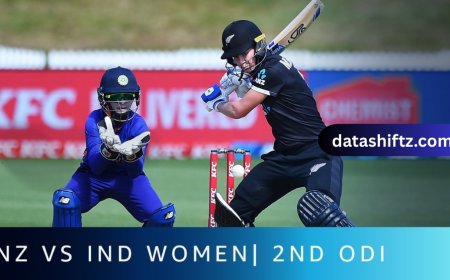Vikram Phadnis: The Maestro of Indian Couture and Cinema

Introduction
Vikram Phadnis is a celebrated Indian fashion designer who transitioned from choreography to becoming one of the most influential couturiers in Bollywood and beyond. Known for his grand yet wearable designs, traditional craftsmanship, and a flair for storytelling through fashion, he has also made his mark as a film director in Marathi cinema. This article explores his journey, creative approach, notable accomplishments, and impact on both fashion and film.
Journey from Choreography to Couture
Vikram Phadnis hails from a family of doctors and initially pursued dance and choreography in his college days. It was during one fashion show that iconic designer Hemant Trivedi recognized his talent and encouraged him to step into fashion professionally. He debuted his first collection in 1991 and, largely self-taught, went on to design for Bollywood's biggest stars.
-
He styled high-profile celebrities like Naomi Campbell (for the “Mai Mumbai” charity show in 2009), Amitabh Bachchan, Sridevi, Sushmita Sen, Malaika Arora, Aishwarya Rai, Priyanka Chopra, and Salma Khan, who he credits for giving him a foothold in the industry.
-
His costume design résumé includes iconic films like Biwi No.1, Mujhse Shaadi Karogi (2005, which earned him the IIFA Best Costume Design award), Salaam-e-Ishq, Golmaal Returns, and many more.
-
At Lakmé Fashion Week 2013, he presented a collection celebrating rural India, featuring Bollywood celebrities showcasing khadi kurtas, embellished lehengas, and tribal-inspired pieces.
Signature Style, Collections, and Collaborations
Vikram Phadnis is admired for blending grandeur with wearability and affordability.
-
His boutique label, Krasaa, offers couture that emphasizes Indian heritage with rich fabrics, intricate embroideries, and modern silhouettes.
-
In 2014, he partnered with Nakshtara Creations to bring couture-inspired outfits to retail—making designer wear accessible.
-
His “Bloom” resort wear collection launched at India Beach Fashion Week 2023 featured free-flowing silhouettes with tie-dye, vibrant greens, and playful prints inspired by his store Adhvan in Goa.
-
At Cosmoprof India 2023, he unveiled “Nazakat,” a bridal collection featuring 29 intricately crafted looks—including monochrome gowns, draped skirts, and embroidered capes combining nostalgia with elegance.
Filmmaking: From Stage to Screen
Beyond fashion, Vikram Phadnis has made significant strides in Marathi cinema as a writer-director.
-
His debut film, Hrudayantar (2017), explores a woman's struggle with her daughter’s cancer and married life. The film received 12 nominations at Filmfare Marathi Awards, with Phadnis winning Best Costume Design.
-
He followed it with Smile Please (2019), based on his mother’s life and coping with dementia. His screenplay and direction earned him a Best Director nomination at Filmfare Marathi Awards 2020.
-
Though working on a Hindi project, it has yet to materialize. Still, his cinematic ventures highlight his narrative vision and emotional depth.
Vikram Phadnis – Highlights of Fashion and Film Career
| Domain | Highlights |
|---|---|
| Fashion Debut | 1991 |
| Early Recognition | Encouraged by Hemant Trivedi to pursue fashion professionally |
| Celebrity Clients | Naomi Campbell, Salman Khan, Aishwarya Rai, Amitabh Bachchan, Sridevi, etc. |
| Notable Projects | Costume design for Mujhse Shaadi Karogi, Salaam-e-Ishq, etc. |
| Awards | IIFA Best Costume Design (2005); Filmfare Marathi Best Costume (2017) |
| Collections | Rural India (Lakmé Fashion Week 2013); Bloom resort wear (2023); Nazakat bridal (2023) |
| Film Direction | Hrudayantar (2017); Smile Please (2019), with award nominations |
| Collaborations | Nakshtara Creations (2014); accessible designer wear |
Traits Defining Vikram Phadnis’s Legacy
-
Self-Taught Excellence – Thrived without formal fashion training, guided by passion and mentorship.
-
Celebrity Signature – A trusted designer for Bollywood icons and international models like Naomi Campbell.
-
Fashion & Cinema Fusion – Seamlessly transitioned designs into cinema, and narrative into film direction.
-
Craftsmanship Meets Wearability – Balances opulence with affordability and practicality.
-
Cultural Sensitivity – Roots his design in Indian tradition, be it rural motifs or bridal elegance.
-
Diverse Platforms – Work spans runways, resorts, bridal showcases, and commercial collaborations.
-
Emotional Storytelling – His films carry deep personal themes, blending empathy with visual color.
Conclusion
Vikram Phadnis represents a unique and inspiring journey—from college-level choreography to high-profile fashion design and meaningful filmmaking. Over three decades, his brand has stood for elegance, cultural pride, and versatility. Whether crafting couture for Bollywood royalty or directing poignant stories for Marathi audiences, he continues to push boundaries with authenticity and artistry.






























